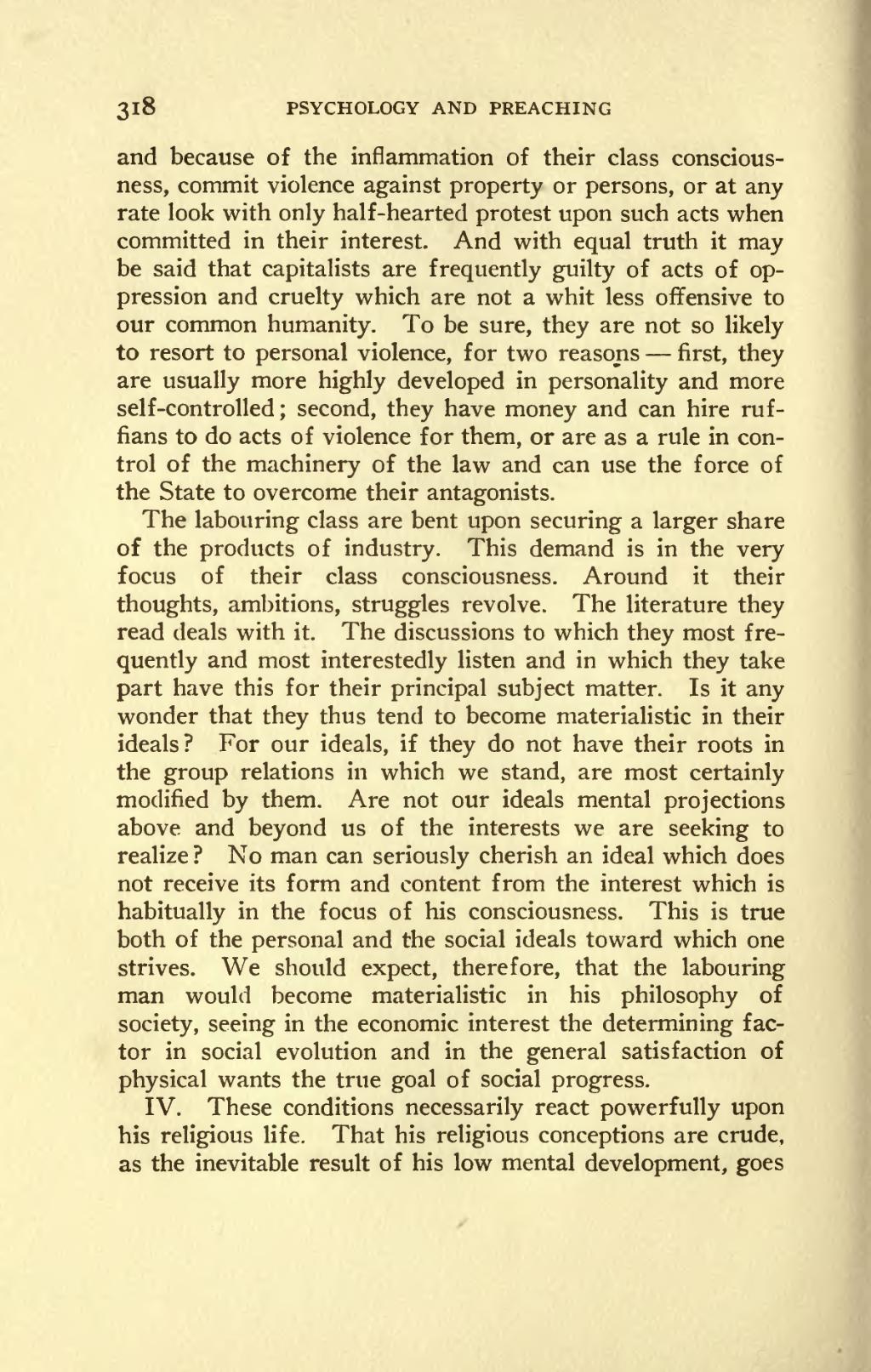318 PSYCHOLOGY AND PREACHING
and because of the inflammation of their class conscious ness, commit violence against property or persons, or at any rate look with only half-hearted protest upon such acts when committed in their interest. And with equal truth it may be said that capitalists are frequently guilty of acts of op pression and cruelty which are not a whit less offensive to our common humanity. To be sure, they are not so likely to resort to personal violence, for two reasons first, they are usually more highly developed in personality and more self-controlled ; second, they have money and can hire ruf fians to do acts of violence for them, or are as a rule in con trol of the machinery of the law and can use the force of the State to overcome their antagonists.
The labouring class are bent upon securing a larger share of the products of industry. This demand is in the very focus of their class consciousness. Around it their thoughts, ambitions, struggles revolve. The literature they read deals with it. The discussions to which they most fre quently and most interestedly listen and in which they take part have this for their principal subject matter. Is it any wonder that they thus tend to become materialistic in their ideals? For our ideals, if they do not have their roots in the group relations in which we stand, are most certainly modified by them. Are not our ideals mental projections above and beyond us of the interests we are seeking to realize ? No man can seriously cherish an ideal which does not receive its form and content from the interest which is habitually in the focus of his consciousness. This is true both of the personal and the social ideals toward which one strives. We should expect, therefore, that the labouring man would become materialistic in his philosophy of society, seeing in the economic interest the determining fac tor in social evolution and in the general satisfaction of physical wants the true goal of social progress.
IV. These conditions necessarily react powerfully upon his religious life. That his religious conceptions are crude, as the inevitable result of his low mental development, goes
�� �
